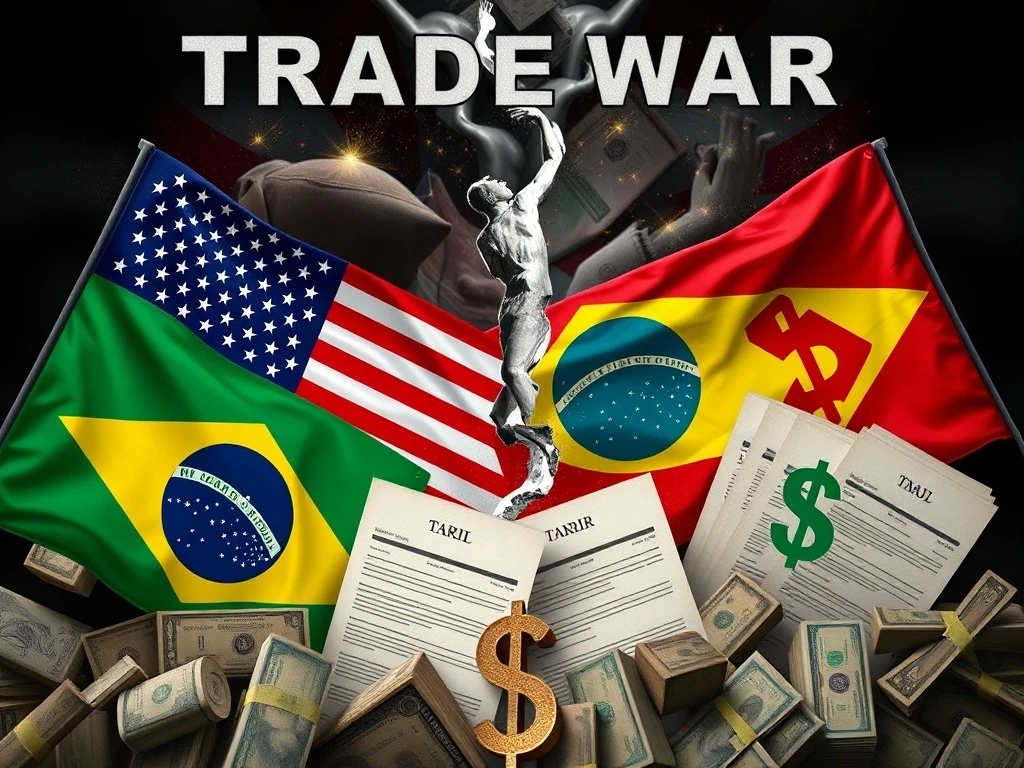Trump Slaps 40% Tariffs on Brazil: Escalating Trade Tensions and Economic Fallout

In a bold move that has sent shockwaves through global markets, President Donald Trump has imposed a staggering 40% tariff on select Brazilian imports, further straining trade relations between the two nations. This decision, announced via executive order on July 18, 2025, marks a significant escalation in the ongoing trade tensions between the US and Brazil. But what does this mean for the global economy, and how will it impact key industries? Let’s dive in.
Trump Tariffs: A Calculated Strike or Political Maneuver?
The new 40% tariff is layered on top of an existing 10% levy, pushing total tariffs on certain goods to as high as 50%. However, the White House has taken a targeted approach, exempting critical exports like crude oil, aircraft parts, and orange juice. This strategic exclusion suggests a balancing act between economic pressure and the need to maintain vital trade relationships.
- National Security Concerns: The Trump administration has framed the tariffs as a response to national security threats and trade imbalances.
- Political Calculations: Critics argue the exemptions protect key political bases, such as Florida’s citrus industry.
- Economic Impact: Smaller Brazilian firms outside exempted sectors are likely to bear the brunt of the new tariffs.
Brazil Trade Tensions: What’s at Stake?
The tariffs come amid a month of heightened tensions between the US and Brazil, including threats of sanctions against local judicial figures. Analysts note that this action aligns with Trump’s history of using selective tariffs as a diplomatic tool, particularly in the lead-up to the 2024 US election.
| Exempted Products | Impacted Products |
|---|---|
| Crude oil | Textiles |
| Aircraft parts | Automobiles |
| Orange juice | Consumer goods |
US Trade Policy Under Trump: A Complex Web
The executive order also includes a provision for further tariff increases if Brazil retaliates, signaling a readiness to escalate the dispute. This move underscores the growing complexity of US trade policy under Trump, which blends strategic economic leverage with political considerations.
Conclusion: A High-Stakes Game of Economic Chess
The imposition of 40% tariffs on Brazil is a high-stakes move that could reshape trade dynamics between the two nations. While the targeted approach minimizes immediate economic shocks, the long-term implications remain uncertain. Will Brazil retaliate, or will this pave the way for renewed negotiations? Only time will tell.
Frequently Asked Questions (FAQs)
1. What products are affected by the new Trump tariffs on Brazil?
The tariffs apply to a subset of Brazilian exports, excluding key products like crude oil, aircraft parts, and orange juice.
2. Why did Trump impose these tariffs?
The administration cites national security concerns and trade imbalances, though critics argue political motivations also play a role.
3. How will this impact US consumers?
Exemptions for critical goods like oil and orange juice aim to shield US consumers and businesses from immediate economic shocks.
4. Could Brazil retaliate?
The executive order includes provisions for further tariff increases if Brazil retaliates, suggesting the US is prepared for escalation.
5. What’s the long-term outlook for US-Brazil trade relations?
The move leaves the door open for negotiations but signals a firm stance, making the future of trade relations uncertain.








